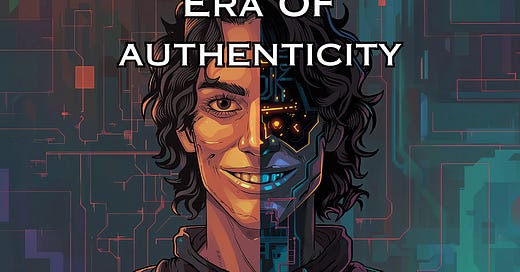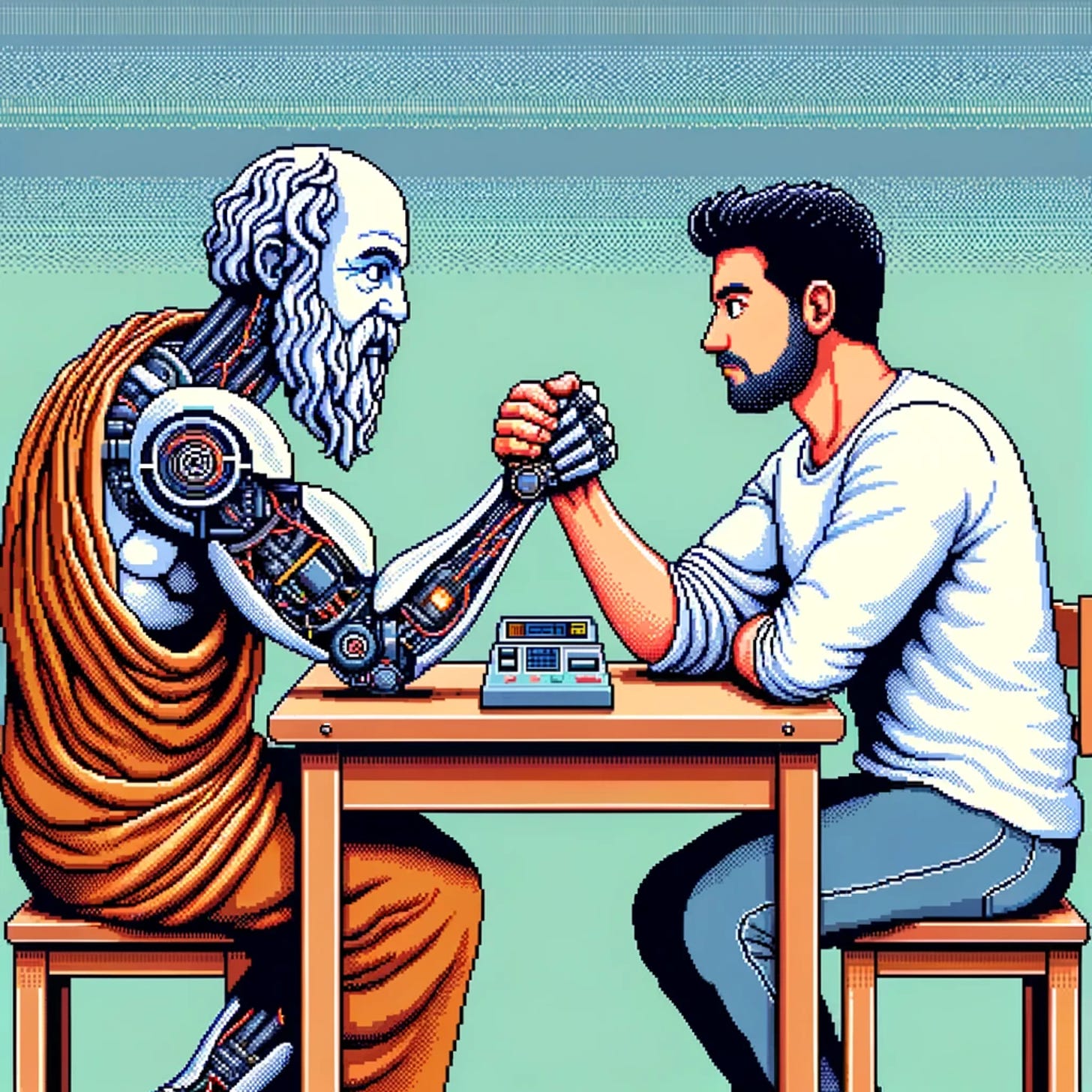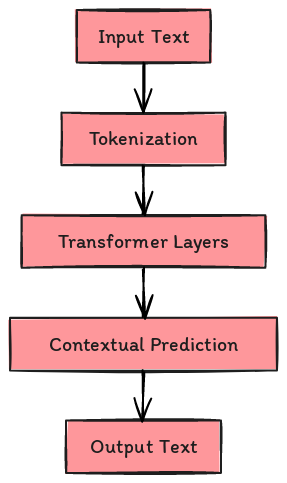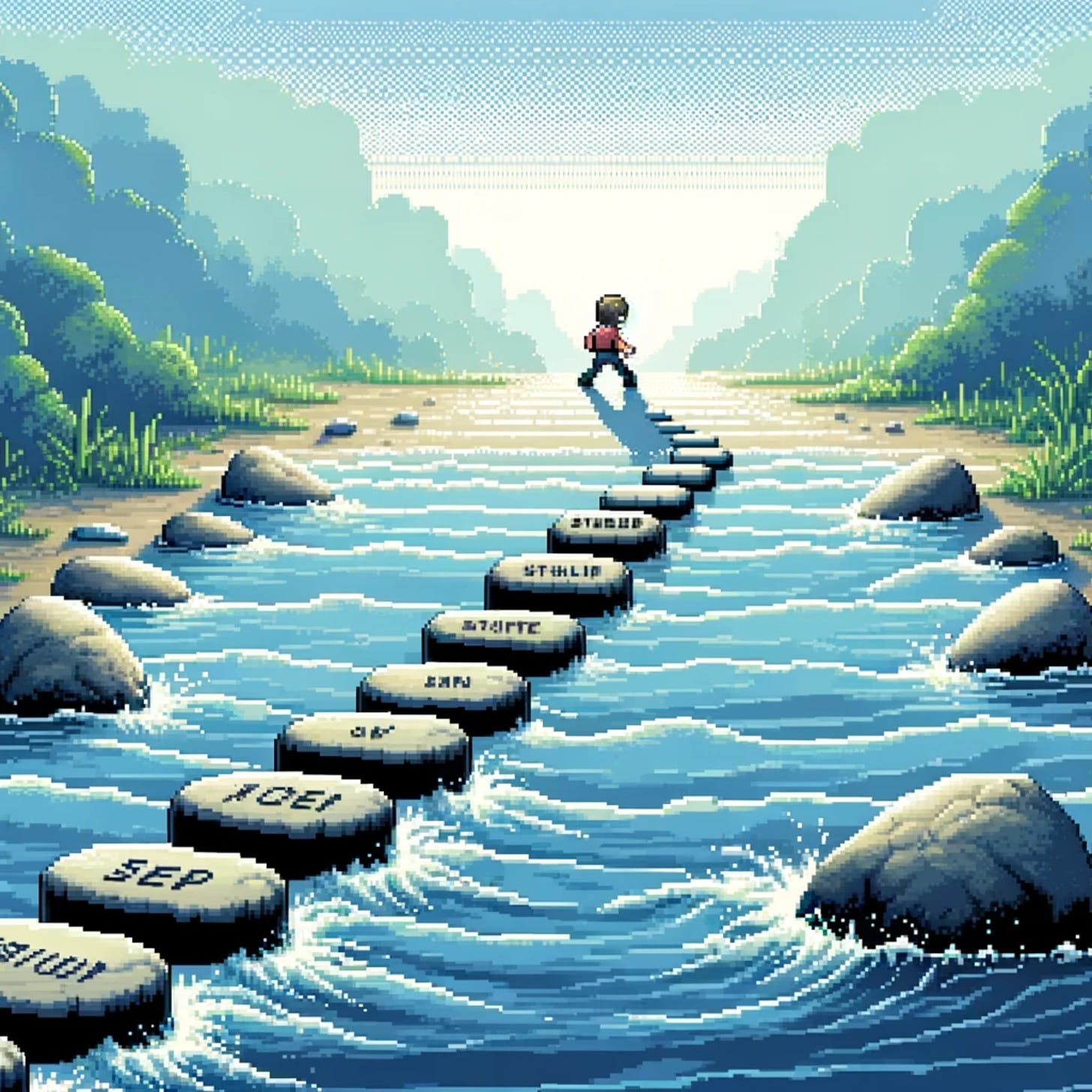Welcome to the 7 new crew members who have joined the frontier expedition since the last letter! If you haven’t subscribed, join the 76 curious explorers in our adventure to understand the frontier of innovative technologies as they relate to the human experience.
I aim to post every 2 weeks. However, I will prioritize meaning over expedience, and if I haven’t had a chance to investigate and edit every word I have written to ensure I believe it to be true, I will not post the piece. I hope the quality makes up for the wait :)
Today, I explore the idea that authenticity is the single best skill you can possess in the era of AGI.
"The greatest hazard of all, losing one's self, can occur very quietly in the world, as if it were nothing at all. No other loss can occur so quietly; any other loss - an arm, a leg, five dollars, a wife, etc. - is sure to be noticed."
~Soren Kierkegaard
The Lost Boys and I loved Neverland - the story was Peter Pan.
I was living it.
Our Neverland was a beer pong table, a 30-rack of Rolling Rock, bars, and always a 'fun' party.
These were my weekends from the ages of 19-22. The weekdays were crowded with a part-time internship and university classes, most of which were uninteresting - I still went. I supplemented my free time with film, gaming, hanging out with my younger brother, and pursuing interests through YouTube videos and podcasts.
The weekends were Neverlandic retreats, and I drudgingly drifted through a week filled with existential angst, sadness, and a 'Self' who cowered in the corner, afraid to peak through to the world and speak his true self - fearing those who he thought loved him, including our Lost Boys, would not like what he had to say.
A remarkable occurrence happened in Neverland on June 8, 2019: I met a girl. This weekend, Neverland was a 'friends' basement, not only with a beer pong table but one that lit up! Not only with beer - but nearly anything that could satiate the need to suppress ourselves quite easily.
The experience of meeting and being around her was outright striking! Wow! We conversed, and the little guy cowering in the corner felt safe to speak! Not only did I feel safe to speak, but she listened and genuinely put forth her words, too!
Is it true that he has a voice?
That girl is now my wife. That night, something remarkable happened that cannot be understated - the guy in the corner came out to talk, and more importantly, I listened and was the conduit of his words.
This voice indicated strongly and firmly that I should try to make it work!
The Lost Boys preferred to avoid long-term engagements that could provide the resources to leave the island. Most pushed back. In fact, the pattern of behavior associated with this pushback was, at one point, what I thought was me! My actions definitely indicated it - I was not a victim but also a Lost Boy. The guy in the corner never spoke to them, or rarely at least - he learned it would be punished if he did.
Though, this time was radically different. I did speak out, and as expected, nearly all of the Lost Boys said it was a bad idea, which was incredibly painful considering how strongly I felt.
I listened to that voice (later identified as the Self), shed off what was necessary to keep listening to it; he started to walk with her by his side, then he started running, and now he's here writing today—not in the least bit worried about what someone might think of him as they scan their eyeballs across these words.
This is for you if this resonates with you at some level (or if you're still waiting for the punch line—next sentence—HAHA!).
Without that journey, I would not be writing today, speaking fully from the Self - and I think that's what authenticity is - which will be the supreme characteristic for individuals in an Artificial General Intelligence world (AGI - defined here as highly autonomous systems that outperform humans at most economically valuable work.)
The single best skill you can possess in the era of AGI is authenticity. If you are only speaking from the sum total of knowledge and words you read or heard, and your utterances are mere phrases from others, I can guarantee you that not only will you be outcompeted by technologically intelligent machines, but you probably already are. This will be highly important when AI takes most modern jobs.
Everyone has some uniqueness - a strong differentiator that makes them beautifully different- and this uniqueness will thrive in future markets.
This is part of the way to transcend beyond a dystopian future of AI; it's one where people genuinely commit to themselves completely and individuate—they become themselves.
I opened with this story because I think identifying your authentic self is extremely challenging, especially if you have not been using it over time. If you had asked me seven years ago if I was being authentic, I would undoubtedly have said, "Hah, of course!" which was not fully the case.
Many beautiful thinkers throughout history (notably the existentialists) have circled around the idea that to burden the suffering imposed upon us by life; we must commit to the authentic pursuit of the truth as it manifests itself to our genuine being, no matter the costs, and further - that not doing so would make life worse for you and everyone around you.
It doesn't matter what career you're in now; being a true, authentic Self is fundamental to your future.
The questions become:
What is authenticity, exactly, and why do I believe wielding it is the only way to stand out in the incoming era of artificial general intelligence?
Large Language Models and What We Really Are
AI improvement is expanding rapidly. Whether we think it will continue at this pace or slow down is beside the point—the release of ChatGPT revealed that intelligence greater than humans is not only possible but is seemingly an upcoming reality knocking on humanity's door.
The current models draw interesting comparisons to the way in which humans relay information to each other.
ChatGPT is a large language model (LLM) architectured with a transformer neural network. Transformers are multi-layered blocks that map input sequences to output sequences. They receive inputs (prompts) and attempt to predict the next words in the sequence - the output. Notably, they predict the words' contextualized representation - by using a model that statistically predicts the word that should come next.
The models are so sophisticated in their ability to recognize word patterns and provide us with impressive responses partly because of the significant amounts of text they've been trained on to increase their contextual understanding (Books, social media, Wikipedia, news, speech, audio recording, academic research papers, etc.).
Entering text into GPT kicks off the process by breaking down the text into machine-manageable pieces (tokens), mapping meaning between the words based on the contextual representation, and responding with the predicted output it believes the input prompt is seeking.
What a revelation! I wonder if it surprised AI researchers, too; intelligence was closely mimicked by studying a history of words, understanding the context based on meaning, and using that understanding to predict what to say next.
What is it that humans do when prompted with words? If someone were to ask you: What do you think about blockchain? I invite you to think about how you might respond.
Reflect on the response - Whose thoughts did you respond with? Was it something you've heard on the news, social media, or even something I've said or written? Humans tend to do this often, and we must do it in some regard!
It's necessary to rely on the history of human ingenuity. Otherwise, we will not learn from and build upon the incredible ideas from our collective past!
But, what makes us different from an LLM if we are but the non-authentic thoughts of our ancestors? If we only exemplify the aggregation of their knowledge rather than ours?
I'm afraid that the answer may be 'nothing' because the effectiveness and computational speed of the machines will soon, and may already, surpass human capability in accessing our ancestral information.
What then differentiates us?
The answer is formulating your own authentic thoughts when prompted rather than responding with other people's thoughts. Making the conscious choice to respond based on our thoughts, experiences, and feelings as they relate to the prompt.
That's not to say you need an entirely novel idea for every response; 2+2 is 4, regardless of your childhood experiences. This kind of response, though, will increasingly be more easily obtained from machines - increasing the need for people who embed their own thoughts in the pursuit of their choice.
What does 'being authentic' actually mean?
There is no clear "How To" on being authentic.
So, I want to use this next section to explain what I've done to practice authenticity and how I plan to continue doing so.
Practicing Authenticity
Finding my authentic self was quite a journey, as I've partially explored in this piece. I sense that this may be a challenging endeavor for many if you haven't investigated or used it for a while.
For me, it took a lot of attention, self-inquiry, and course correction for about seven years to say that I am in a place where I can confidently identify it and use it openly with an audience, as I am doing in this piece.
How did I get there?
Sometime between 2017 and 2018, I watched a clip derived from a 2014 Jordan Peterson lecture in which he discusses the process of endeavoring this route of authenticity (it may also have been a Q&A session in which he describes the process—nevertheless, the concept remains).
The video nicely complements this section. In the video, JBP explores the idea that humans are mostly not their thoughts.
He lays out his authenticity practice: make 'attention' the superordinate value over a period of time, and act as an independent observer over yourself. When you speak, if you feel weak and/or realize the words aren't you - stop talking and find the right words that are you. He continues by describing the feeling of weakness as a "coming apart" in his stomach; adding that it subjectively feels false and generates a sense of self-betrayal.
He parallels his idea to a nice fictional representation - that of Frodo, Sam, and Golem crossing the Marsh of Dead Souls in Lord of the Rings - if they misstep, they fall into the water with dead souls.
From my experience, I agree with feeling a sense of 'falsehood.' The feeling of self-betrayal most definitely resonates - I feel ferocious levels of guilt even in the slightest of 'self-betrayal,' so that has become a key identifier for me. Historically, it has been challenging for me to identify mid-conversation, but as I've practiced using that voice more, it has become easier to identify.
I imagine this as stones emerging as I cross a river. The river is the realm of thought; the stones are the words that allow me to complete the thought as I actually see it. If I need to rely on the thoughts of someone from the past, I make it known: "x person thought y."
I don't have all the answers to the question of 'how to be authentic.' I know that it starts from within and will likely look different for everyone.
I plan to continue exploring this idea and how we can augment ourselves with current technologies to manifest more of our authentic selves in the process.
This is not all to say: only rely on your own words. However, if your honest utterances from your true self are unjustly criticized and punished, be careful lest they will hide and be underdeveloped.
If you find people who will engage in the honest endeavor of their true selves with you, you may be transformed for the better.
"The meeting of two personalities is like the contact of two chemical substances: if there is any reaction, both are transformed."
~Carl Jung
Conclusion
I placed a quote from Kierkegaard at the beginning that I really enjoyed about the loss of 'self' because it is such a terrible loss but can happen so quickly and quietly.
Regardless of the origin of the loss, it must be regained - especially considering it is what may set us apart from intelligent machines.
I was struck by the idea for this piece in early April, which is but a seed of what feels like a large idea that I will continue to explore. There are so many areas I would like to go here, and I'm excited to continue to explore this deeply.
If you are interested in this idea or emerging technology and its interaction with humans, feel free to subscribe to continue receiving these in your inbox ~ every two weeks. If you have already subscribed and enjoyed this one so much that you would like to share it, I would certainly appreciate it.
If you are on a journey similar to mine, please know this: That boy in the corner, who crawled and didn't know how to walk, is now a man, staring the computer screen in the face, able to intertwine my true self, experiences, and genuine thoughts about interest areas of mine with the world. I'm not sure who this is reaching, but I sure hope that if you look within and are cowering in the corner, you have the strength to take the necessary path to be who you were meant to be - because not only do I think it to be the way to a meaningful life, but, at least in my experience, it's given me the most beautiful adventure I could have ever hoped for, which I will continue to explore every day.
Thank you, everyone - I hope you have a wonderful two weeks. I'll see you all in the next one :)
Dom
Also, if you have some good book recommendations on the concept or exploration of authenticity or the problems associated with not exploring it, please comment below! I’m going to dive into Ayn Rand and Kierkegaard soon and would love some more similar recs








